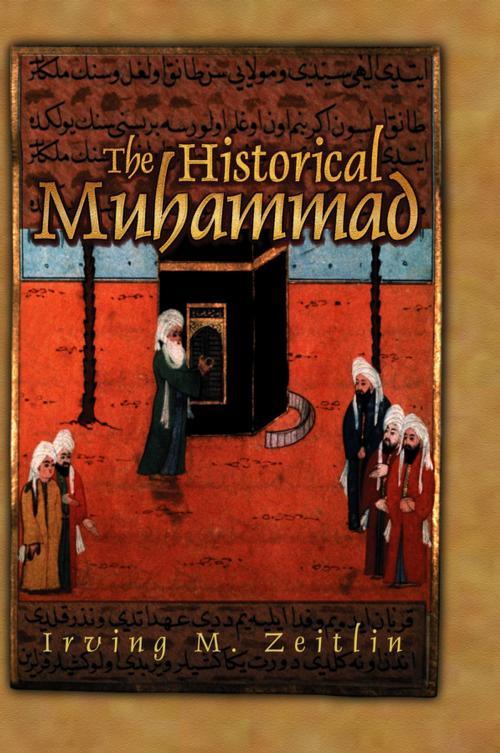| Author: | Irving M. Zeitlin | ISBN: | 9780745654881 |
| Publisher: | Wiley | Publication: | April 25, 2013 |
| Imprint: | Polity | Language: | English |
| Author: | Irving M. Zeitlin |
| ISBN: | 9780745654881 |
| Publisher: | Wiley |
| Publication: | April 25, 2013 |
| Imprint: | Polity |
| Language: | English |
In his quest for the historical Muhammad, Zeitlin's chief aim is to catch glimpses of the birth of Islam and the role played by its extraordinary founder. Islam, as its Prophet came to conceive it, was a strict and absolute monotheism. How Muhammad had arrived at this view is not a problem for Muslims, who believe that the Prophet received a revelation from Allah or God, mediated by the Angel Gabriel. For scholars, however, interested in placing Muhammad in the historical context of the seventh-century Arabian Peninsula, the source of the Prophets inspiration is a significant question.
It is apparent that the two earlier monotheisms, Judaism and Christianity, constituted an influential presence in the Hijaz, the region comprising Mecca and Medina. Indeed, Jewish communities were salient here, especially in Medina and other not-too-distant oases. Moreover, in addition to the presence of Jews and Christians, there existed a third category of individuals, the Hanifs, who, dissatisfied with their polytheistic beliefs, had developed monotheistic ideas.
Zeitlin assesses the extent to which these various influences shaped the emergence of Islam and the development of the Prophets beliefs. He also seeks to understand how the process set in motion by Muhammad led, not long after his death, to the establishment of a world empire.
In his quest for the historical Muhammad, Zeitlin's chief aim is to catch glimpses of the birth of Islam and the role played by its extraordinary founder. Islam, as its Prophet came to conceive it, was a strict and absolute monotheism. How Muhammad had arrived at this view is not a problem for Muslims, who believe that the Prophet received a revelation from Allah or God, mediated by the Angel Gabriel. For scholars, however, interested in placing Muhammad in the historical context of the seventh-century Arabian Peninsula, the source of the Prophets inspiration is a significant question.
It is apparent that the two earlier monotheisms, Judaism and Christianity, constituted an influential presence in the Hijaz, the region comprising Mecca and Medina. Indeed, Jewish communities were salient here, especially in Medina and other not-too-distant oases. Moreover, in addition to the presence of Jews and Christians, there existed a third category of individuals, the Hanifs, who, dissatisfied with their polytheistic beliefs, had developed monotheistic ideas.
Zeitlin assesses the extent to which these various influences shaped the emergence of Islam and the development of the Prophets beliefs. He also seeks to understand how the process set in motion by Muhammad led, not long after his death, to the establishment of a world empire.















